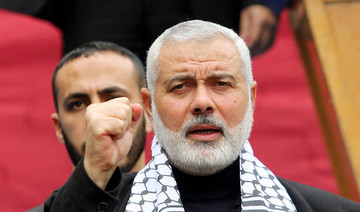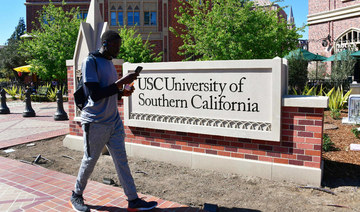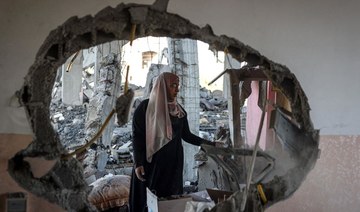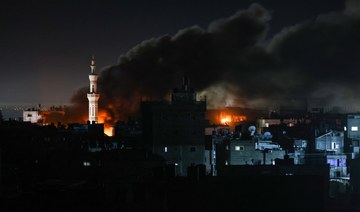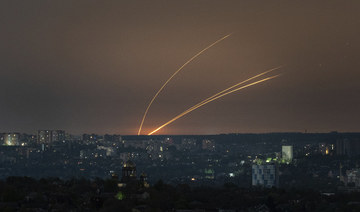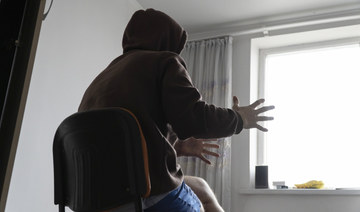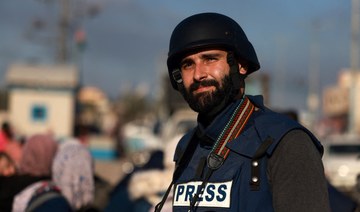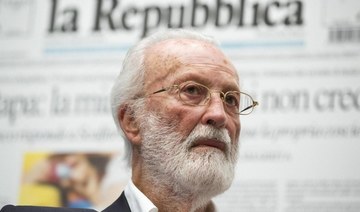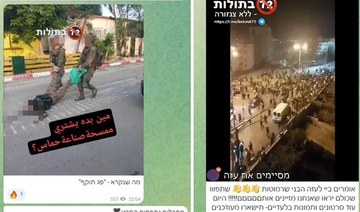CAIRO: A controversial law passed by Egypt’s Parliament on Monday classifies social media accounts with more than 5,000 followers as media outlets, exposing them to the country’s harsh regulations for journalists.
Under the new law, social media users with a large following can be subject to prosecution for spreading false news or inciting crime.
The law prohibits the establishment of websites without first obtaining a license from the Supreme Council for the Administration of the Media, a government body with authority to legally suspend or block websites in violation of the country’s strict laws, and penalize editors with hefty fines.
Journalists are also forbidden from filming in prohibited areas, according to the new law.
While the bill stipulates that its provisions will apply to press and media organizations, Article 19 states that personal websites, blogs or social media accounts with no ties to the press are also liable to prosecution and must be licensed by the Supreme Council.
“That power of interpretation has been a powerful legal and executive tool used to justify excessive aggressive and exceptional measures to go after journalists,” Sherif Mansour, Middle East and North Africa program coordinator for the Committee to Protect Journalists, told Reuters this week.
The law’s vague language gives authorities even more power to control the media, he said.
Egypt has faced mounting criticism in recent years for its draconian laws regarding the press and freedom of expression, in addition to widespread human rights violations.
A 2015 counterterrorism law, enacted by President Abdel Fattah El-Sisi, gave the government sweeping powers over the regime’s critics under the guise of protecting the nation. The law allows prosecutors to detain suspects without judicial review, and order surveillance of suspected individuals or organizations without the need for a court order.
With a broad definition of what constitutes a terrorist act, the law creates a vague framework under which the government can arbitrarily detain citizens and implement punishments as severe as the death penalty. The law also requires journalists in Egypt to report only the official state version of any news related to national security.
In May 2017, the Egyptian government blocked about 20 websites affiliated with local and international news outlets, including independent news sites such as Mada Masr and Daily News Egypt, as well as blogs criticizing the regime.
A few months later, the government’s efforts were expanded to include sites affiliated with human rights groups and organizations. This included websites of local NGOs as well as international organizations like Human Rights Watch.
More than 500 websites are now blocked in Egypt, including VPN and proxy sites such as Tor and TunnelBear that allow Egyptians to circumvent online censorship. No official government body has claimed responsibility for blocking the websites.
According to a 2018 report by Human Rights Watch, El-Sisi’s repressive legislation offers the government “near-absolute impunity for abuses by security forces under the pretext of fighting terrorism.”
The report goes on to explain that in addition to numerous extrajudicial killings, hundreds have been placed on terrorism lists without due process with many more civilians being sent to military trials with charges of political dissent.
“The Egyptian Commission for Rights and Freedoms, an independent rights group, said that as of mid-August, 378 people had disappeared over the previous 12 months and the whereabouts of at least 87 remained unknown. These numbers do not include those who were found killed after having gone missing,” the report said.
Reporters Without Borders called Egypt “one of the world’s biggest prisons for journalists” and said that many reporters have spent years in prison without being formally charged.
“The Internet is the only place left where independently reported news and information can circulate, but more than 400 websites have been blocked since the summer of 2017 and more people are being arrested because of their social network posts,” it said.
Egypt tightens grip on media with new bill
Egypt tightens grip on media with new bill

- Social media accounts and blogs with more than 5,000 followers on sites such as Twitter and Facebook will be treated as media outlets
- The media council will supervise the law and take action against violations
US police arrest Jadaliyya co-editor Sinan Antoon during pro-Gaza demonstration at New York University
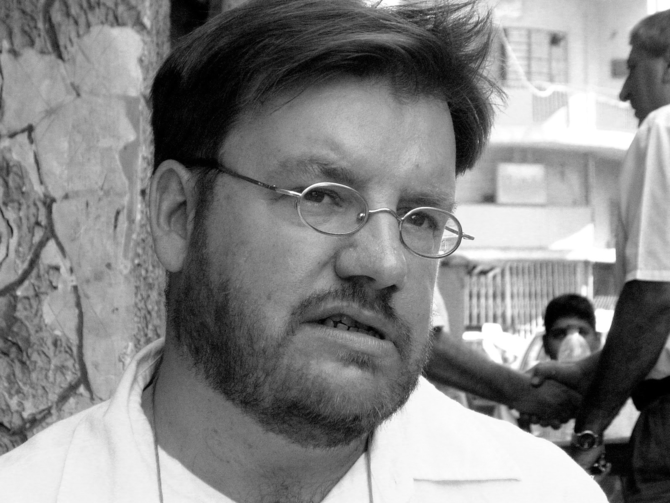
- Antoon was arrested along with other NYU faculty members while attempting to protect demonstrating students from the police
- NYU students were calling for a ceasefire in Palestine's Gaza Strip
LONDON: US police officers on Monday arrested Sinan Antoon, the co-editor of Jadaliyya magazine, during a pro-Gaza demonstration at New York University in Manhattan.
The Arab Studies Institute publication announced in a post on X that Antoon, an associate professor at NYU, was arrested with other faculty members while trying to protect protesting students, who were reportedly calling for a ceasefire in the Gaza Strip.
BREAKING: NYPD arrested Jadaliyya Co-Editor and NYU Associate Professor Sinan Antoon along with other faculty and students as he/they was/were trying to protect NYU students from the Police. We will not ever be silenced.
— Jadaliyya (@jadaliyya) April 23, 2024
Antoon is an Iraqi-American poet, novelist, literary translator and academic. He was born and raised in Baghdad before moving to the US after the 1991 Gulf War.
The Israeli onslaught on the besieged enclave has since Oct. 7 killed at least 34,000 Palestinians, displaced some 1.9 million, and injured more than 75,800 people, according to Gaza’s health authority.
Confirming Jadaliyya’s announcement, human rights attorney Noura Erakat wrote on X: “NYPD is arresting faculty on their campuses for protecting their students.
“The academy is imbricated with the state and the military industry intent on war in blatant abrogation of its mission and any semblance of independence. What a gross betrayal.”
NYPD is arresting faculty on their campuses for protecting their students.
— Noura Erakat (@4noura) April 23, 2024
The academy is imbricated w the state & the military industry intent on war in blatant abrogation of its mission & any semblance of independence. What a gross betrayal. #Gaza #Genocide #Nakba https://t.co/f0tnYhHnNt
On Monday, officers from the New York Police Department moved in on NYU demonstrators after a deadline expired for people to clear an area of the campus, the Financial Times reported.
This came hours after New York’s Columbia University, where more than 100 people were arrested last week, announced it would switch to online classes in an attempt to defuse pro-Palestine protests.
The arrests at the NYU campus are part of a string of US police clampdowns on university students across the country protesting against the war on Gaza.
Local authorities claimed the clampdowns came amid scrutiny over “antisemitism” on US university campuses.
US police also arrested at least 47 pro-Gaza demonstrators at Yale University in New Haven, Connecticut.
The Columbia University clampdown, the first of its kind in three decades, triggered protests on other US campuses, including at Brown University, Berkeley, Princeton, Northwestern, Massachusetts Institute of Technology, and Emerson College in Boston.
In addition to calling for a ceasefire in Gaza, the protesting students also reportedly called for divestment of the university’s funds from companies linked to Israel.
PEN America awards canceled after writers’ boycott over Gaza
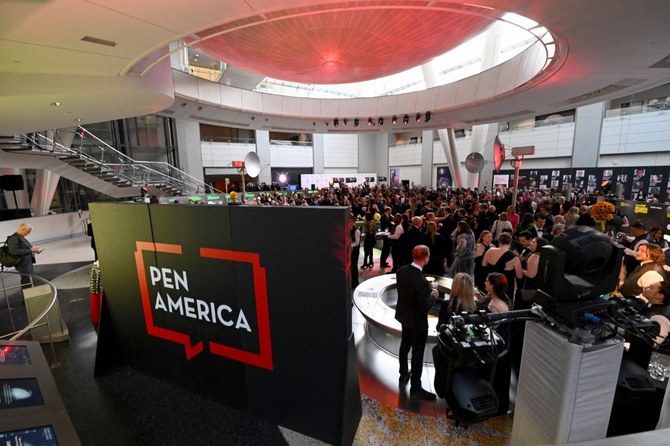
- Almost half of nominated authors withdrew works from consideration
- PEN America accused of complicity in ‘normalizing genocide’ in Gaza
LONDON: PEN America has cancelled its 2024 annual literary awards after several authors boycotted the event over the organization’s perceived failure to take a strong stance against Israel’s war on Gaza.
The decision came in response to an open letter signed by dozens of authors and translators who withdrew their work from consideration for the awards.
Sixty-one authors and translators were nominated but 28 withdrew their work, according to a statement released on Monday, forcing the organization to cancel next week’s event.
“This is a beloved event and an enormous amount of work goes into it, so we all regret this outcome but ultimately concluded it was not possible to carry out a celebration in the way we had hoped and planned,” said CEO Suzanne Nossel.
The boycott emerged amidst growing tensions with PEN, with authors urging the organization to take a stronger stance on the Palestinian crisis and advocate for a Gaza ceasefire.
In the letter, PEN was accused of acting as a “cultural front for American exceptionalism” and complicity in “normalizing genocide” by failing to address the situation in Gaza adequately.
“In the context of Israel’s ongoing war on Gaza, we believe that PEN America has betrayed the organization’s professed commitment to peace and equality for all, and to freedom and security for writers everywhere,” said a separate letter signed last month by several famous writers including Michelle Alexander, Naomi Klein and Zaina Arafat.
PEN America has defended its actions, citing its recent condemnation of the loss of life in Gaza, calls for a ceasefire, and the establishment of a $100,000 emergency fund for Palestinian writers.
The awards, which celebrates voices across various genres including writers of fiction, poetry, children’s literature and drama, was scheduled for April 29 at the Town Hall in New York City.
Russia orders jail term for Meta spokesman in absentia on ‘terrorism’ charges
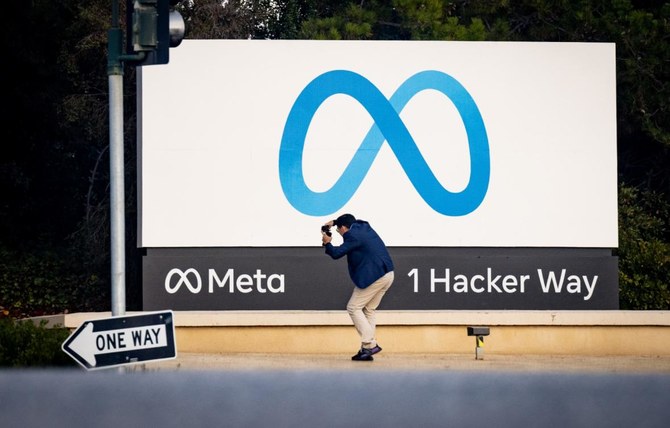
- Andy Stone was sentenced to six years in what has been described as a symbolic ruling agaist Western social media platforms
MOSCOW: A Russian military court on Monday sentenced in absentia Meta spokesman Andy Stone to six years behind bars for “justifying terrorism,” as part of efforts to restrict Western social media platforms in the country.
The largely symbolic ruling came several months after Mosocw, which has blocked Meta platforms Instagram and Facebook, put the US citizen on a wanted list.
Judge Roman Kiforenko said the sentence would begin upon Stone setting foot on Russian territory or being extradited to Russia, news agencies reported.
The case followed a post by Stone in March 2022 — weeks into Moscow’s offensive in Ukraine — in which he said Facebook would not punish users calling for violence against Russian forces.
Stone said Meta had “temporarily made allowances for forms of political expression that would normally violate our rules like violent speech such as ‘death to the Russian invaders.’“
“We still won’t allow credible calls for violence against Russian civilians,” the post read.
Nick Clegg, the President of Meta Global Affairs, said at the time that the policy would only apply “in Ukraine itself.”
Clegg said the decision was taken in “extraordinary and unprecedented circumstances” and was designed to protect “people’s rights to speech as an expression of self-defense.”
Russia barred Meta CEO Mark Zuckerberg from entering the country shortly after launching hostilities in Ukraine.
Moscow does not tolerate criticism of the offensive on social media, imposing fines or jail terms to thousands for denouncing the large-scale military campaign now in its third year.
Terry Anderson, US journalist held hostage nearly 7 years in Lebanon, dead at 76

- Former AP correspondent was abuducted by pro-Iran Shiite Muslim group as part of “continuing operations against Americans”
LONDON: Terry Anderson, a US journalist who was held captive by Islamist militants for almost seven years in Lebanon and came to symbolize the plight of Western hostages during the country’s 1975-1990 civil war, died on Sunday at age 76, his daughter said in a statement.
The former chief Middle East correspondent for The Associated Press, who was the longest held hostage of the scores of Westerners abducted in Lebanon, died at his home in Greenwood Lake, New York, said his daughter Sulome Anderson, who was born three months after he was seized. No cause of death was given.
Kept in barely-lit cells by mostly Shiite Muslim groups in what was known as The Hostage Crisis, and chained by his hands and feet and blindfolded much of the time, the former Marine later recalled that he “almost went insane” and that only his Roman Catholic faith prevented him from taking his life before he was freed in December 1991.
“Though my father’s life was marked by extreme suffering during his time as a hostage in captivity, he found a quiet, comfortable peace in recent years. I know he would choose to be remembered not by his very worst experience, but through his humanitarian work with the Vietnam Children’s Fund, the Committee to Protect Journalists, homeless veterans and many other incredible causes,” Sulome Anderson said.
The family will take some time to organize a memorial, she said.
Anderson’s ordeal began in Beirut on the morning of March 16, 1985, after he played a round of tennis. A green Mercedes sedan with curtains over the rear window pulled up, three gunmen jumped out and dragged Anderson, still dressed in shorts, into the car.
The pro-Iran Islamic Jihad group claimed responsibility for the kidnapping, saying it was part of “continuing operations against Americans.” The abductors demanded freedom for Shiite Muslims jailed in Kuwait for bomb attacks against the US and French embassies there.
It was the start of a nightmare for Anderson that would last six years and nine months during which he was stuck in cells under the rubble-strewn streets of Beirut and elsewhere, often badly fed and sleeping on a thin, dirty mattress on a concrete floor.
During captivity, both his father and brother would die of cancer and he would not see his daughter Sulome until she was six years old.
“What kept me going?” he asked aloud shortly after release. “My companions. I was lucky to have people with me most of the time. My faith, stubbornness. You do what you have to. You wake up every day, summon up the energy from somewhere. You think you haven’t got it and you get through the day and you do it. Day after day after day.”
Other hostages described Anderson as tough and active in captivity, learning French and Arabic and exercising regularly.
However, they also told of him banging his head against a wall until he bled in frustration at beatings, isolation, false hopes and the feeling of being neglected by the outside world.
“There is a limit of how long we can last and some of us are approaching the limit very badly,” Anderson said in a videotape released by his captors in December 1987.
Marcel Fontaine, a French diplomat who was released in May 1988 after three years of captivity, recalled the time cell mate Anderson thought freedom was near because he was allowed to see the sun and eat a hamburger.
In April 1987 Anderson was given a suit of clothes that his captors had made for him. “He wore it every day,” Fontaine said.
A week later, however, Anderson’s captors took the suit back, leaving him in despair and certain he was forgotten, Fontaine said.
Scores of journalist groups, governments and individuals over the years called for Anderson’s release and his Oct. 27 birthday became an unofficial US memorial day for hostages.
Anderson said he considered killing himself several times but rejected it. He relied heavily on his faith, which he said he had renewed six months before being kidnapped.
“I must have read the Bible 50 times from start to finish,” he said. “It was an enormous help to me.”
His sister, Peggy Say, who died in 2015, was his fiercest advocate during captivity.
She worked tirelessly for her brother’s freedom. She visited Arab and European capitals, lobbied the Pope, the Archbishop of Canterbury and every US official and politician available.
Under pressure from the media and the US hostages’ families, the Reagan administration negotiated a secret and illegal deal in the mid-1980s to facilitate arms sales to Iran in return for the release of American hostages. But the deal, known as the Iran–Contra affair, failed to gain freedom for any of the hostages.
Born Oct. 27, 1947, in Lorain, Ohio, Anderson grew up in Batavia, New York. He graduated from Iowa State University and spent six years in the Marine Corps, mostly as a journalist.
He worked for the AP in Detroit, Louisville, New York, Tokyo, Johannesburg and then Beirut, where he first went to cover the Israeli invasion in 1982.
In that war-torn city, he fell in love with Lebanese woman Madeleine Bassil, who was his fiance and pregnant with their daughter Sulome when he was snatched.
He is survived by his daughters Sulome and Gabrielle, his sister Judy and brother Jack, and by Bassil, whom Sulome Anderson called “his ex-wife and best friend.”
Anderson and fellow hostages developed a system of communication by tapping on walls between their cells. Always the journalist, Anderson passed on news of the outside world he had picked up during captivity to Church of England envoy Terry Waite, being held hostage in an adjacent room in September 1990 after years of solitary confinement.
“Then the world news: the Berlin Wall’s falling, communism’s demise in eastern Europe, free elections in the Soviet Union, work toward multiracial government in South Africa. All the incredible things that have happened since he was taken nearly three years ago. He thought I was crazy,” Anderson wrote in his 1993 book “Den of Lions.”
After his release, Anderson taught journalism at Columbia University in New York, Ohio University, the University of Kentucky and the University of Florida until he retired in 2015.
Among businesses he invested in were a horse ranch in Ohio, and a restaurant. He unsuccessfully ran for the Ohio state Senate as a Democrat in 2004 and sued Iran in federal court for his abduction, winning a multimillion-dollar settlement in 2002.
British man investigated for hate crime after viral racist rant against Muslim women

- ‘I don’t understand why people stand by and let it happen,’ says witness
LONDON: A hate crime investigation is underway following a viral video of an attack against Muslim women in East London, police confirmed on Sunday.
The incident occurred on Saturday in Romford when a white male, wearing glasses, targeted the group, some of whom were wearing hijabs and pushing shopping trolleys.
The footage, shared by Redbridge Community Action Group, shows the man following the women down South Street, a busy shopping area, while shouting and gesturing aggressively as they attempt to leave the scene.
The man is heard using profanities and labeling the women “Muslim traitors.”
In an outburst caught on camera, he accused one of the women of supporting missile attacks against Israel, adding: “We don’t want you here.” He went on to use an expletive.
The Metropolitan Police has confirmed it is treating the confrontation as a hate crime.
Scotland Yard posted on X: “We are aware and urgently investigating this clearly unacceptable incident. We will be speaking to the victim later.”
Vaseem Ahmed, 55, who was participating in a rally supporting a free Palestine, and located near Barclays Bank on the high street, witnessed the incident.
As police arrived, Ahmed noted that the activists dispersed, with the confrontation occurring as the women headed home.
He told The Independent: “I’d say to him (the white male) ‘If you’re going to be brave, do the same thing in front of some Muslim men (and) then see what the outcome is.’
“Don’t target innocent people; it’s the worst kind of bullying. And grow up. Some of the stuff he was saying was really vile.
“He was so angry and so worked up he couldn’t get his words out properly. It wasn’t the most eloquent rant.”
He added: “I know those women from other demonstrations. I was shocked in the way it happened, but then not shocked at the same time. Islamophobic attacks have skyrocketed since Oct. 7.
“A lot of government ministers and even Rishi Sunak refuse to call out Islamophobia when it happens, and people get emboldened.
“We are visibly Muslim, especially women, (and) they become easy targets. That’s the saddest thing.
“I didn’t see anyone intervene. They might have been concerned for their safety, but all you have to do is shout a few times; you don’t have to put yourself in danger. I don’t understand why people stand by and let it happen.”




